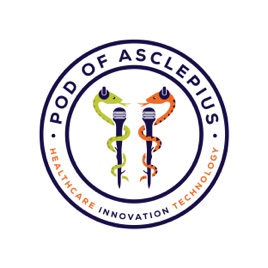
Advertise on podcast: Data & Science with Glen Wright Colopy
Rating
5 from
Country
This podcast has
85 episodes
Language
Publisher
Explicit
No
Date created
2020/01/14
Average duration
67 min.
Release period
16 days
Description
The Pod of Asclepius is a healthcare technology podcast for the technical crowd. No fluff, no sales pitches, just important health tech ideas (described well!) to help everyone keep learning and becoming more of an expert in the field. Our guests are top researchers (from academia and industry), entrepreneurs, and regulatory experts. They will talk about cool technology, from data science to engineering, but also share insights on practical concerns of bridging the gap between technical innovation and a clinical solution.
Podcast episodes
Check latest episodes from Data & Science with Glen Wright Colopy podcast
Wenting Cheng & Weidong Zhang | Advances in Biotech/Biopharma
2022/05/10
Wenting and Weidong discuss how the statistical challenges in the biopharm industry have proliferated with the unique demands of biotech and related life science industries.
Ruda Zhang | Gaussian Process Subspace Regression
2022/05/10
Ruda Zhang | Gaussian Process Subspace Regression
Ruda Zhang (Duke University) walks us through "Gaussian Process Subspace Regression for Model Reduction" by Zhang, Mak, and Dunson.
To keep the topic interesting for both the early career & advanced audience we recap key points at a high level so that no one gets lost.
This episode involves a presentation, so you may prefer to watch the YouTube version here: https://youtu.be/IPtqUUG4XcY
Ruda's website: https://ruda.city/
The paper: https://arxiv.org/abs/2107.04668
more
Ruda Zhang | Math-Science Duality
2022/04/14
Ruda Zhang | Math-Science Duality
Watch it on...
Youtube: https://youtu.be/GoDwen-RGZg
Podbean: https://dataandsciencepodcast.podbean.com/e/ruda-zhang-math-science-duality/
Statistics is thought to reside at the interface of science and mathematics. Ruda Zhang (Duke University) discusses the friction at this interface and the role that both mathematical formalism & observational/data-driven intuition play in scientific discovery. A great topic for anyone interested in statistics' role in scientific discovery.
#datascience #ai #science #mathematics
Topic List
00:00 COMING UP...
2:44 Ruda Zhang's compendium of cool ideas + a Gaussian process PSA
7:08 Is intuition undervalued in scientific research?
10:16 Mathematics vs observational science. Rigor vs intuition.
14:07 Intuition & discovery precedes mathematical rigor
21:58 Mathematics vs empirical science & the complexity of induction
30:24 Abstract thinking & the cost/benefit of discovery
37:25 The efficient frontier / Pareto Front of knowledge
42:55 Pragmatism and competence
50:24 Math /science dualism
1:15:52 AI making scientific discoveries
1:19:15 Statistical & scientific debate
more
Simon Mak | Integrating Science into Stats Models
2022/04/06
Simon Mak | Integrating Science into Stats Models
#statistics #science #ai
It’s a common dictum that statisticians need to incorporate domain knowledge into their modeling and the interpretation of their results. But how deeply can scientific principles be embedded into statistical models? Prof. Simon Mak (Duke University) is pushing this idea to the limit by integrating fundamental physics, physiology, and biology into both the models and model inference. This includes Simon’s joint work with Profs. David Dunson and Ruda Zhang (also of Duke University).
Scientific reasoning AND stats. What more could we ask for?
Enjoy!
Watch it on....
YouTube: https://youtu.be/bUbZO7R4z40
Podbean: https://dataandsciencepodcast.podbean.com/e/simon-mak-integrating-science-into-stats-models/
00:00 - COMING UP….Scientists & Statisticians
02:09 - Introduction - Integrating scientific knowledge into AI/ML
06:08 - How much domain knowledge is sufficient?
09:15 - Choosing which prior knowledge to integrate into a model
14:49 - Black box & gray box optimization
19:50 - Non-physics examples of integrating scientific theory into ML models
22:45 - Scientific principles & modeling at different scales
27:20 - Correlation is one just way of modeling linkage
36:37 - Conditional independence & different-fidelity experiments
39:40 - Innovation vs incorporation of known information in the model
42:52 - Aortic stenosis example
52:49 - Which mathematics can be used to represent scientific knowledge
57:09 - How to acquire scientific domain knowledge
1:02:45 - Complementary approaches to integrating science
1:06:48 - Gaussian process & integrating priors over functions
1:12:48 - A topic for statisticians and scientists to debate:science-based vs data-based learning.
Simon Mak's Webpage: https://sites.google.com/view/simonmak/home
more
Martin Goodson | Practical Data Science & The UK’s AI Roadmap
2022/03/16
Martin Goodson | Practical Data Science & The UK's AI Roadmap
#ai #datascience #startups
Martin Goodson (Evolution AI) describes the key aspects of the UK's AI Roadmap & responses to the document by members of the Royal Statistical Society. In particular, Martin describes the disconnect between the priorities of AI startups and industry practitioners on one side, and government and academia on the other. Martin also outlines which skills early career data scientists should focus on while in school versus after entering the workforce.
Also available on....
YouTube: https://youtu.be/T9qRl6Hclhg
Topic List
0:00 COMING UP: Scientific culture & AI
1:25 The UK AI Roadmap
8:44 Who is a data science “practitioner”?
12:53 Data science in AI startups
20:36 Is there a disconnect between practitioners & academia?
25:09 Key skills for new data science graduates
32:03 Coding & production level data science
39:30 Learning the right data analysis skills at the course-level.
45:32 AI leadership
58:40 AI from academia & OpenSource initiatives
1:05:37 Large institutions' impact on the AI field
1:08:24 Back to the UK AI roadmap
1:12:16 Building an AI community
1:13:15 AI in our lifetime: Moonshots & realistic goals
1:14:31 Scientific debate
more
Jack Fitzsimons | Data Security, Privacy, & Artificial Intelligence
2022/03/01
Dr. Jack Fitzsimons (Oblivious AI) gives a high-level introduction to the technologies that can either exploit or protect your data privacy. If you'd like to survey the landscape of data privacy-preserving technologies (from someone who's building the tech) this is a good place to start!
#datascience #privacy #ai
0:00 - Coming up...
3:24 - Introduction
6:20 - Data privacy and privacy enhancing technologies
13:00 - History of privacy enhancing technologies
19:54 - Differential privacy: Hiding the influence of a single data point
22:52 - Trading data utility for data privacy
38:32 - Tracking algorithms and how they decide user preferences
42:04 - Preserving privacy: Anonymizing data & VPNs
50:17 - Exploration vs Exploitation: Combining best of multiple domains to tackle problems
54:13 - Federated learning, input and output privacy of data
58:45 - Balancing data privacy vs data-driven personalization
1:05:50 - What should data scientists/statisticians debate?
more
Chris Tosh | The piranha problem in statistics
2022/02/22
The piranha problem (too many large, independent effect sizes influence the same outcome) has received some attention on Andrew Gelman’s blog. But now it’s a paper! Chris Tosh (Memorial Sloan Kettering) talks about multiple views of the piranha problem and detecting the implausible scientific claims that are published. The butterfly effect makes an appearance.
If you enjoyed the science-vs-pseudoscience topics, you’ll enjoy this one.
0:00 - Coming up in the episode
2:35 - What is the Piranha Problem?
19:54 - Confusing effect sizes
23:11 - The "words & walking speed" study
26:22 - Declaration of independent variables
30:58 - Piranha theorems for correlations
37:07 - Piranha theorems for linear regression
40:37 - Piranha Theorems for mutual information
44:13 - Bounds on the independence of the covariates
46:12 - Applying the piranha theorem to real data
50:12 - Applying the piranha theorem across studies
54:05 - A Bayesian detour
1:00:12 - The butterfly effect & chaos
1:04:26 - Applying the piranha theorem to cancer research
more
Chris Holmes | AI, Digital Health, & The Alan Turing Institute
2022/02/09
Chris Holmes is Professor of Biostatistics at the University of Oxford and Programme Director for Health and Medical Sciences at The Alan Turing Institute. Chris’ research interests include Bayesian nonparametrics (which is the right kind of nonparametrics), statistical machine learning, genomics, and genetic epidemiology.
0:00 - Intro
1:38 - Chris Holmes, Professor of Biostatistics at Oxford University
3:28 - UK Biobank & designing a valuable dataset
8:42 - Healthcare charities in the UK
11:16 - Digital Health: prioritizing research questions
19:55 - Bayes, nonparametrics, and Bayesian nonparametrics
23:30 - Model prediction is at the heart of Bayesian inference
28:00 - Prioritization in model building for biology
33:09 - Model constraints to generate valid inference
37:34 - Hypothesis driven science in statistical learning versus deep learning
43:30 - Developing models in genomics & clinical informatics
48:37 - Building stable, generalizable and robust models
52:41 - Important questions to think about
54:05 - Causal reasoning and clinical risk prediction
57:50 - What topic should the statistical community debate?
more
Philosophy of Data Science | Deborah Mayo | Revolutions, Reforms, and Severe Testing in Statistical Thinking
2022/02/04
Philosophy of Data Science Series
Keynote with Deborah Mayo
Episode 1: Revolutions, Reforms, and Severe Testing in Statistical Thinking
In the first keynote of the Philosophy of Data Science Series we have a 2-part interview with Deborah Mayo (Virginia Tech).
In the first part of our keynote with Deborah Mayo we cover...
- The role of scientific revolution and its implications for statistics and data scientist.
- The necessity of statistical reforms and why philosophy will play a role.
- The value of severe testing of scientific claims.
Watch it on...
YouTube: https://youtu.be/S4VAEShM3BU
Podbean:
You can join our mail list at: https://www.podofasclepius.com/mail-list
We're always happy to hear your feedback and ideas - just post it in the YouTube comment section to start a conversation.
Thank you for your time and support of the series!
Topics:
0:00 - Preface to First Keynote Interview
2:00 - Welcome Deborah Mayo!
5:05 - What is the Philosophy of Statistics?
8:15 - What does philosophy add to data science?
16:10 - Scientific revolution in statistics
20:10 - Statistical reforms
24:25 - Replication & hypothesis pre-specification
31:00 - Failure is severe testing
37:25 - Error statistics
48:00 - Scientific progress and closing remarks
more
Charlotte Deane | Bioinformatics, Deepmind’s AlphaFold 2, and Llamas
2022/02/01
Charlotte Deane | Bioinformatics, Deepmind's AlphaFold 2, and Llamas
#datascience #ai
Charlotte Deane (Oxford University) talks about statistical approaches to bioinformatics, the evolution of Google Deepmind's AlphaFold 2 & its place in protein informatics deep learning landscape. She also describes humanizing antibodies, and the increasing role of software engineers in statistical research groups. The topic of llamas, camels, and alpacas (and their unique place in proteomics research) makes a surprise visit.
[Note: This episode was originally published in January 2022, but the file contained a buffering error, which prevented the full interview from being played. This version, published Feb 1, 2022 contains the full interview.]
Topics
0:00 Intro / An important topic to debate
3:50 What is a protein? Why are proteins foundational?
13:32 Immunotherapies, humanizing antibodies, & creating an scientific databases
16:04 Translating in silico research into immunotherapies
21:03 Nanobodies, camels, alpacas, & llamas.
25:05:00 Databases and data knowledge bases
33:21:00 Targeted therapies
39:45:00 Statistical modeling in proteomics
45:40:00 DeepMind AlphaFold's evolution
55:28:00 Software engineers in academic research groups
1:03:21 The adventure of science
1:07:42 Oxford Blues hockey & scientific debate
more
Eric Schwitzgebel | Consciousness, Zombies, & First Person Data | Philosophy of Data Science
2021/12/02
The philosophical community continuously aims to reconcile differing views on first person data and the consciousness of the mind. Is it possible to live without consciousness? Can one conceive thoughts without matching images to them? In this episode, Eric Schwitzgebel of the University of California tries to dissect such topics and questions to help us better understand the philosophical world.
Keywords: philosophy, epistemic data, first person data, stimulus error, imageless thought, consciousness
more
Starting a Statistics Consultancy | Janet Wittes
2021/11/22
Starting a Statistics Consultancy | Janet Wittes
The following interview was a keynote fireside chat with Janet Wittes (Statistics Collaborative, Inc.) titled "Statisticians as Entrepreneurs". It was recorded for the BBSW 2021 Conference (Nov 3 - 5 in Foster City, CA).
References:
BBSW 2021 Conference: https://www.bbsw.org/bbsw2021
Topics:
0:00 Janet's background prior to founding Statistics Collaborative, Inc.
3:00 Janet's initial research interest as a consultant
4:10 Why did Janet start her own business as opposed to joining a company or university.
5:45 Who were Janet's first clients?
8:00 What did Janet want to instill in her company?
15:50 Earning enough money to hire people
18:55 Initial ratio of clients to employees
22:42 Janet's company's statistical tech stack
25:00 Different challenges at different stages of the company
27:28 Growing a company but not taking on every possible client or project
28:13 Statisticians as entrepreneurs
37:00 Choosing the right people
more
Podcast reviews
Read Data & Science with Glen Wright Colopy podcast reviews
Podcast sponsorship advertising
Start advertising on Data & Science with Glen Wright Colopy & sponsor relevant audience podcasts
You may also like these mathematics Podcasts

0
0
49
Boston Computation Club
Max von Hippel

4.7
18
57
The Art of Mathematics
Carol Jacoby
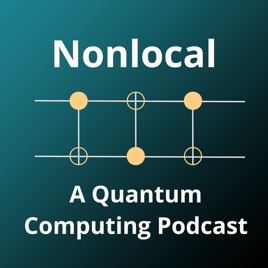
5
8
4
Nonlocal: a quantum computing podcast
Vincent Russo, William Slofstra, and Henry Yuen
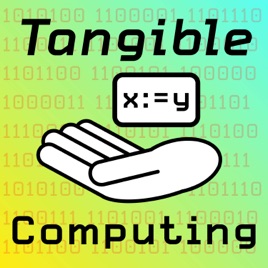
0
0
22
Tangible Computing
Gareth & Andrew

5
13
83
Allison Loves Math Podcast
Allison Dillard
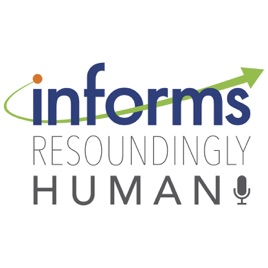
4.8
26
100
Resoundingly Human
INFORMS

5
6
85
Data & Science with Glen Wright Colopy
Glen Wright Colopy

4.2
11
1
All about math
Camp VSA 3
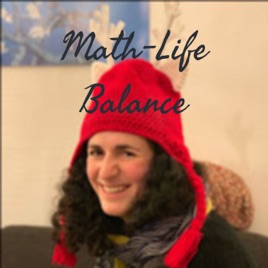
5
1
24
Math-Life Balance
Mura Yakerson
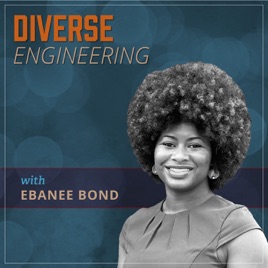
5
7
13
Diverse Engineering
EbaNee Bond



